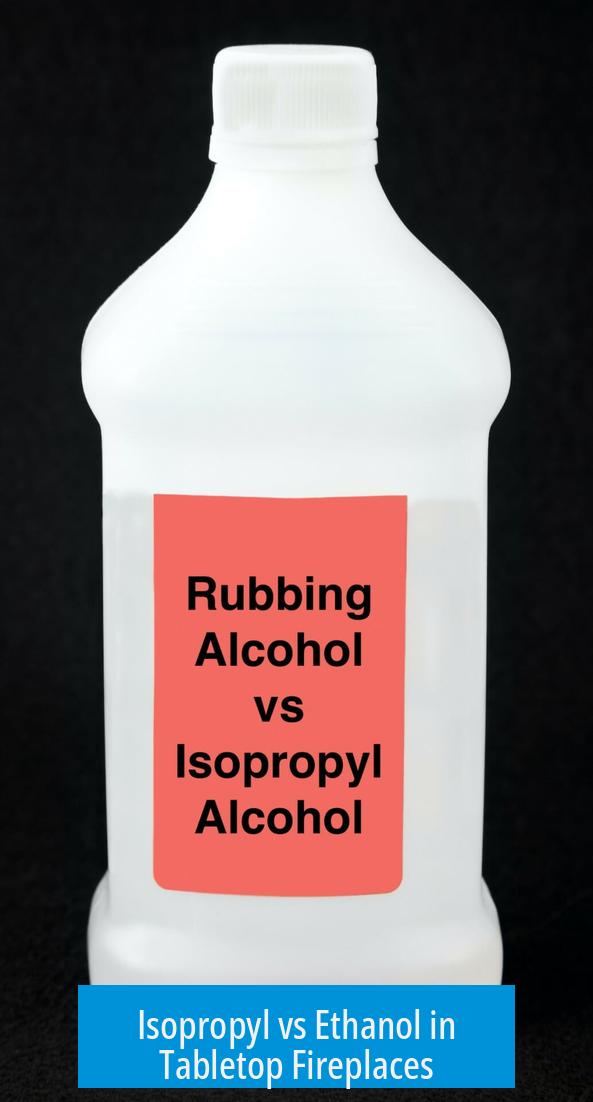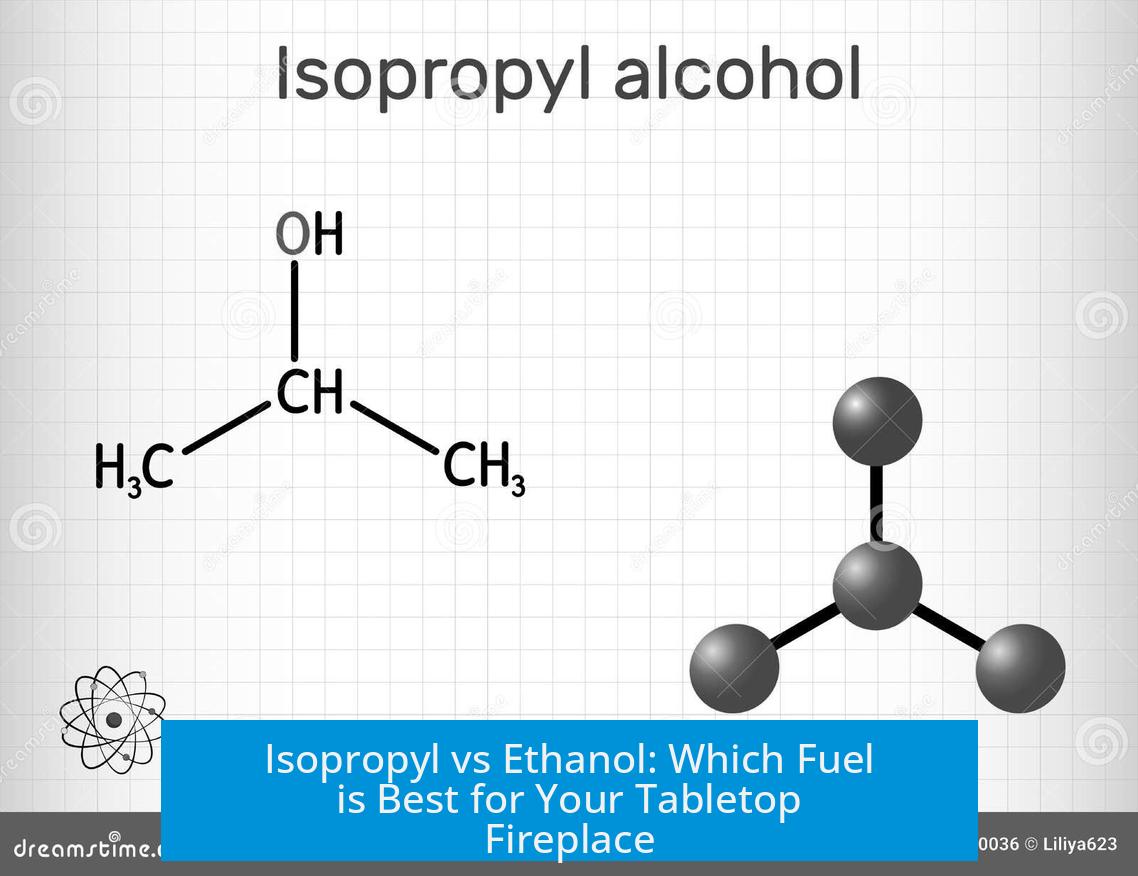Isopropyl vs Ethanol in Tabletop Fireplaces

Isopropyl alcohol and ethanol differ chemically and in how they perform as fuels in tabletop fireplaces. Ethanol is generally preferred for this use due to better safety and combustion properties.
Chemical Structure Differences
Ethanol and isopropanol differ in their molecular structure. Ethanol (C2H5OH) has a two-carbon chain with a hydroxyl group at the end. Isopropanol (C3H7OH), also called isopropyl alcohol, contains three carbons with the hydroxyl attached to the middle carbon. This structural distinction affects combustion and volatility.
Production and Purity
Ethanol is primarily produced through fermentation using yeast but is rarely obtained in pure form outside industrial contexts. Common available sources include high-proof liquors like Everclear, with an ethanol concentration of 70% ABV or higher, suitable for burning. Isopropanol is commercially available primarily as a disinfectant or solvent and may contain additives or impurities unsuitable for fuel.
Use and Safety in Tabletop Fireplaces
- Manufacturer Recommendations: Most tabletop fireplace makers specify ethanol-based fuels or bespoke fireplace fuels. Isopropanol is rarely recommended and may void warranties.
- Burn Characteristics: Isopropanol burns hotter and faster than ethanol. This can lead to rapid fuel consumption and increased fire hazards.
- Impurities and Ventilation: Burning isopropanol may release harmful vapors or combustion byproducts. Proper ventilation is critical to avoid inhalation risks.
Summary of Fuel Choice
While some users experiment with isopropanol, ethanol-based fuels remain standard for tabletop fireplaces. Ethanol fuels offer more controlled burning, lower risks, and align with manufacturer guidelines. The ambiguity among some users reflects the limited official guidance on alternative fuels like isopropanol.
Key Takeaways
- Ethanol has two carbons; isopropanol has three with a different OH placement.
- Ethanol fuels are preferred and often recommended for tabletop fireplaces.
- Isopropanol burns faster and hotter, increasing safety concerns.
- Proper ventilation is essential when burning any alcohol to avoid inhaling harmful vapors.
- Manufacturer guidelines usually exclude isopropanol as a fuel option.





Leave a Comment